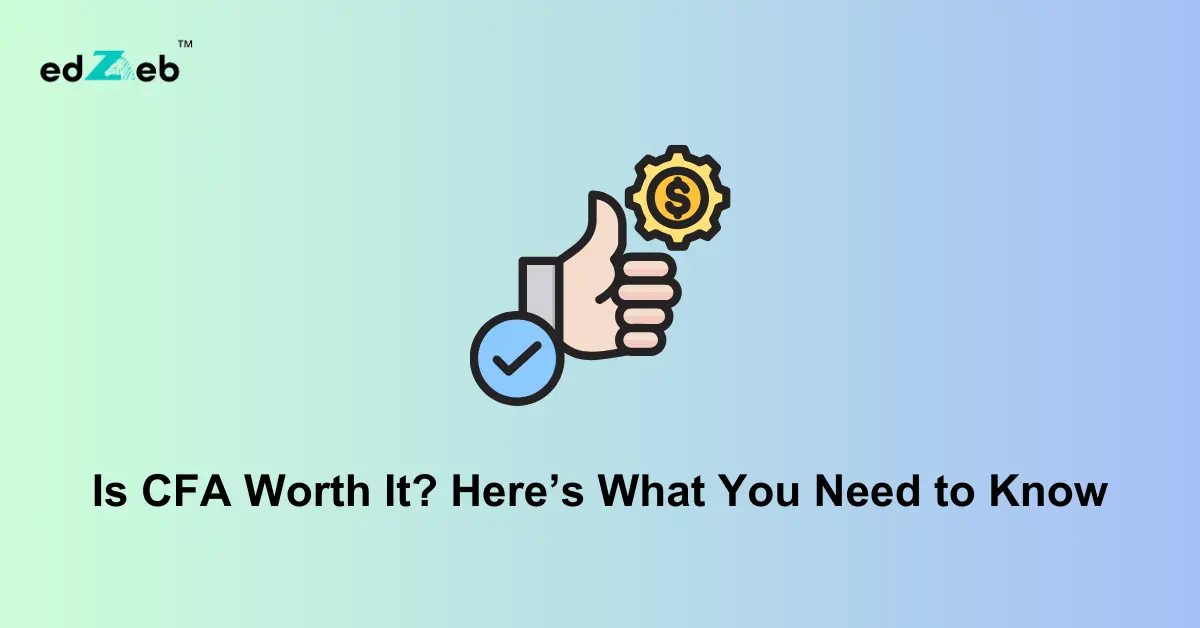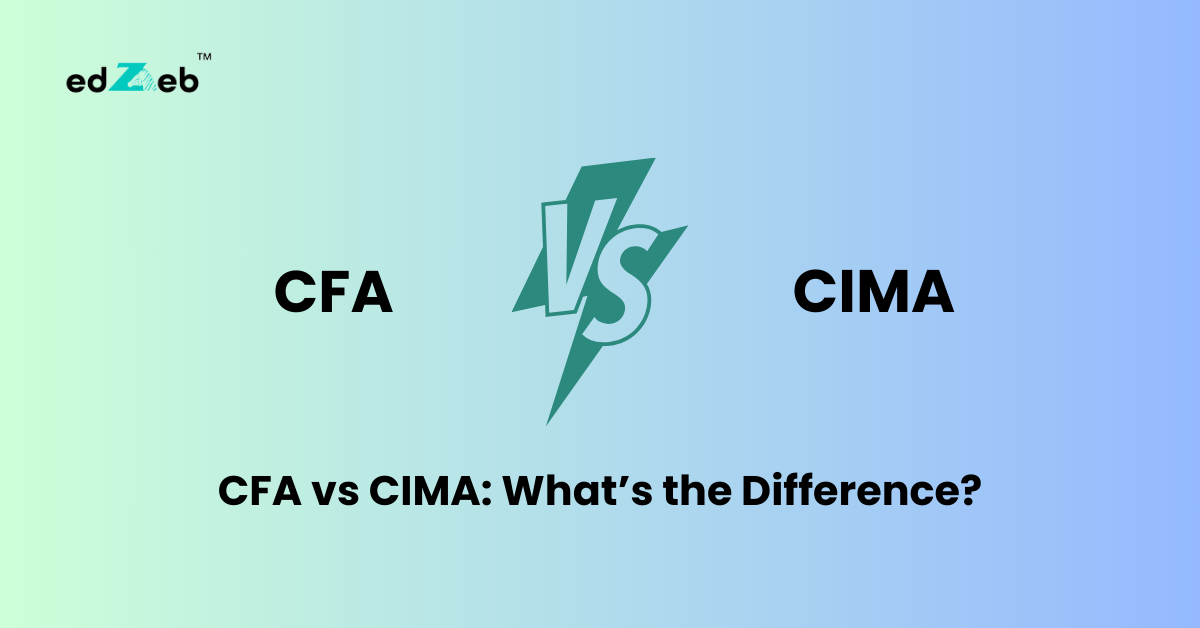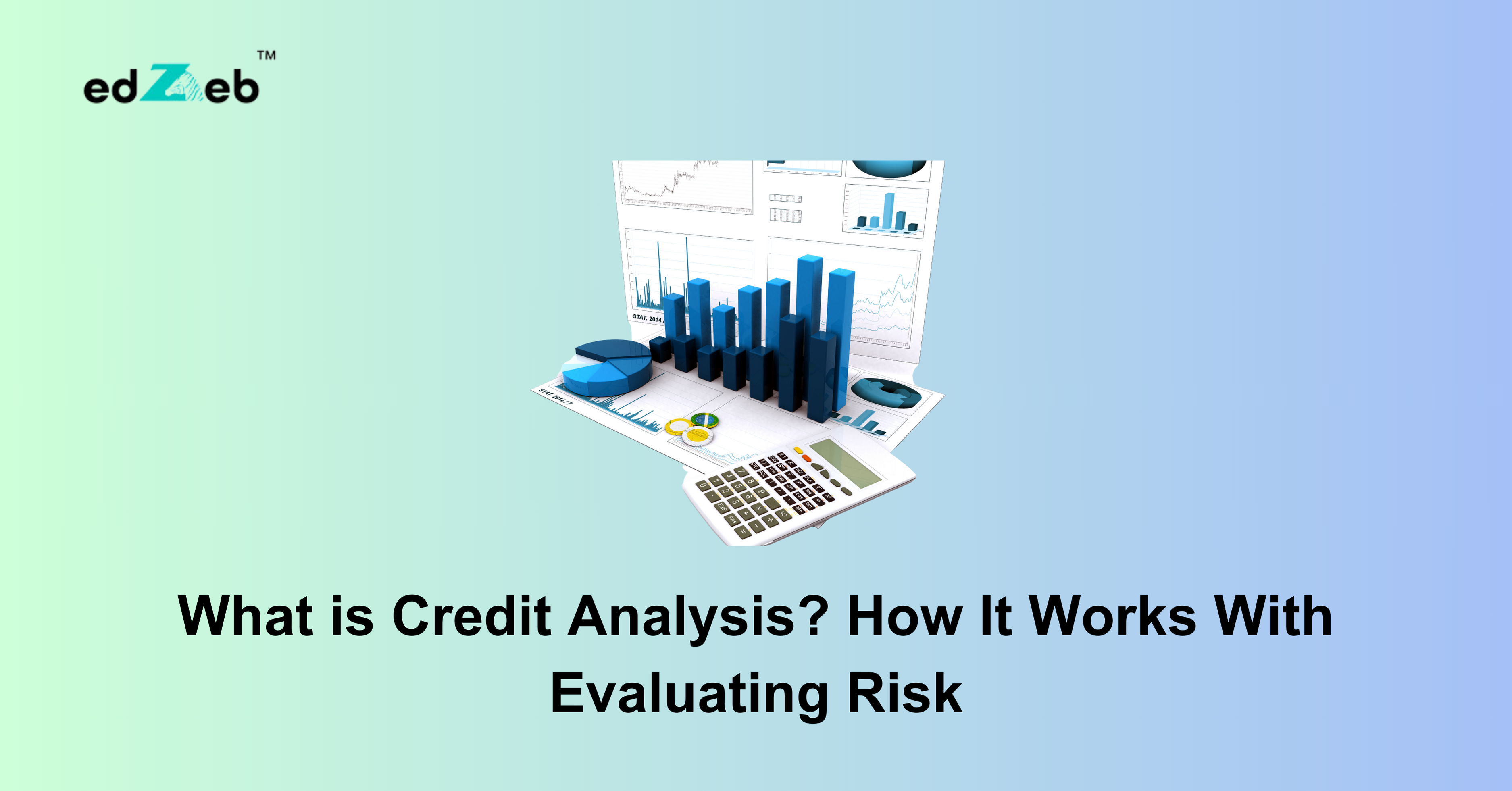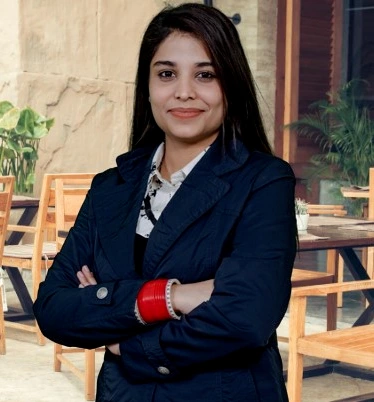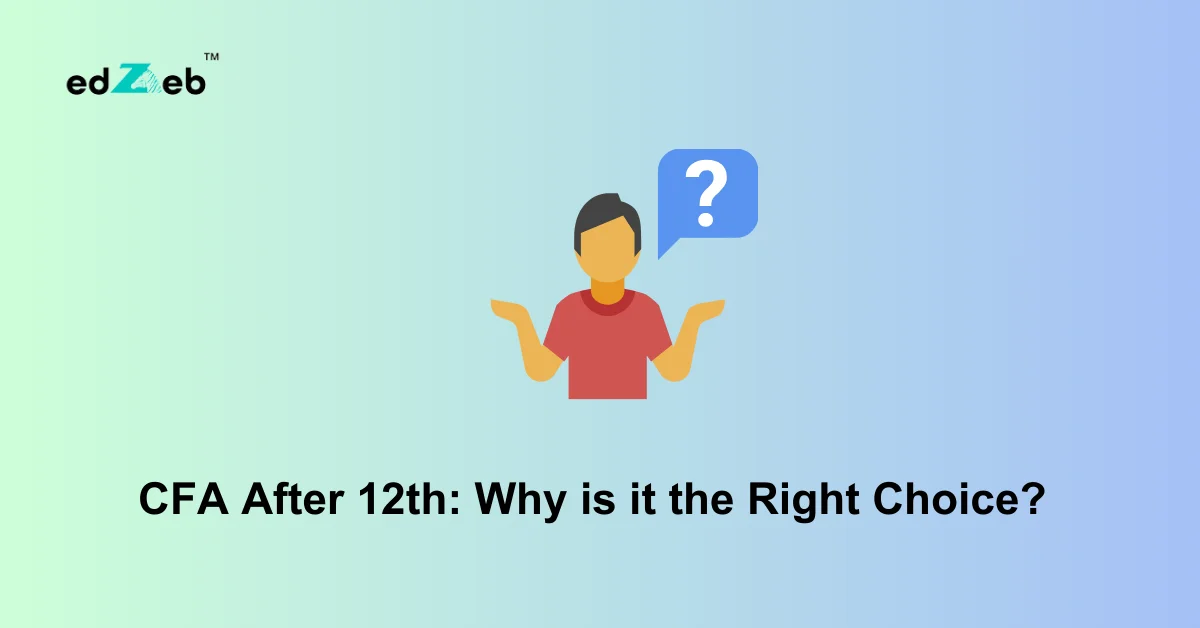
Confused? Almost every 12th-pass student goes through this phase. He has to make an informed decision, especially when considering a career in finance. Deciding what to do and which course to choose is quite challenging, as the parents, teachers, and everyone around him is giving suggestions. This advice from the students’ guardians generally influences their decision.
Out of many courses, how about CFA, have you heard of it before? I bet commerce students or those aspiring to build a finance career must be aware of it. So, yes! CFA after 12th is among many courses that you can pursue. To understand CFA eligibility and CFA duration , CFA Salary in India and more, let’s dive a little deeper into the course details you need to know after 12th.
Table of Contents:
- CFA After 12th: An Overview
- CFA Certification and its Structure
- Can I do CFA After 12th?
- CFA Course Details After 12th
- CFA Eligibility after 12th
- CFA Course Duration after 12th
- CFA Exam Pattern
- CFA Course Fees after 12th
- CFA After 12th for Global Opportunities and Career Pathways
- Conclusion
- Frequently Asked Questions
CFA After 12th: An Overview
CFA stands for Chartered Financial Analyst. It is a professional designation awarded by the CFA Institute. CFA is a prestigious credential having worldwide recognition. The CFA program basically focuses on investment analysis and portfolio management. It ensures that the professionals maintain both competence and integrity in the financial profession. Many professionals pursue CFA after CA to deepen their expertise in finance, particularly in investment and portfolio management, ensuring career growth.
The CFA institute awards the CFA designation when you complete the CFA program with relevant work experience. The CFA Program is a three-part exam testing the fundamentals of investment tools, valuing assets, portfolio management, and wealth planning. Individuals with finance, accounting, economics, or business backgrounds are expected to complete it with more ease. After gaining the CFA designation, you are qualified to work in senior and executive positions in investment management, risk management, asset management, and more.
CFA Certification and its Structure
The CFA certification at hand signifies expertise in finance and investment management. It is structured across three rigorous levels designed to assess a candidate’s proficiency in financial analysis and decision-making.
CFA Exams
A CFA candidate has to pass all three CFA levels and study these ten subjects given below, but the weightage of these subjects varies at all levels.
- Ethics and Professional Standards
- Portfolio Management
- Economics
- Corporate Issuers
- Alternative Investments
- Equity Investments
- Fixed Income
- Quantitative Methods
- Financial Reporting and Analysis
- Derivatives
CFA Exam Structure
The CFA Level I exam consists of 180 multiple-choice questions in total. There is an optional break between sessions.
- First session (2 hours, 15 minutes): 90 MCQs
- Second session (2 hours, 15 minutes): 90 MCQs
The CFA Level II exam comprises 22 vignette sets with 88 multiple-choice questions. This exam lasts for 4 hours and 24 minutes, divided into two 2-hour and 12-minute sessions with an optional break in-between.
Can I Do CFA After 12th?
While the eligibility is open to every student aspiring to build a career in finance and accounting with flexible entry points based on prior academic background, qualification, and experience, but Can we do CFA after 12th? No, there is no option to it, it cannot be directly pursued by a 12th pass-out. A consideration to do CFA after 12 is having 4,000 hours of work experience. The non-graduates with experience can also start their CFA journey from edZeb.
You must have completed a bachelor’s program to enroll in the CFA program. If you are wondering, Can I do CFA after 12th? Then students in the 2nd year of their graduation can appear for CFA level I. Your exam must be 23 months or fewer before your graduation month.
After finishing any other financial or accounting course, or while employed as a professional, you can also enroll in the CFA program.
CFA Course Details After 12th
It is commonly observed that CFA after 12 is a shortlisted program by those interested in finance. So, if you are also interested in pursuing the CFA charter, you need to meet specific eligibility criteria. Along with that, you shall also be aware of the CFA duration after 12th and its course structure. Knowing the CFA course details after 12th is crucial for planning your academic and professional journey in finance. Refer to the table for a quick brief and read further for detailed information.
Criteria | Requirements |
| Eligibility | Bachelor’s degree or 2nd-year undergraduate student |
| Course Duration | 3-5 years (varies) |
| Exam Pattern | Varies according to levels |
| Course Fees | Registration fee + Enrollment fee + exam fee |
| Additional Costs | Rescheduling fee: USD 250, exam and tax fees |
CFA Eligibility after 12th
The CFA eligibility is open to everyone aspiring to build a career in finance. To pursue the program, you must have completed a bachelor’s program from a recognized university.
However, the CFA eligibility after 12th has been revised by the institute. With this extension of CFA eligibility after 12th, students can now start their journey toward their global finance career. It includes university students with two years remaining in their undergraduate studies.
So, it can be pursued by
- 2nd year students can appear for CFA level I
- Your exam must be 23 months or fewer before your graduation month
- Non-graduates: have a 4,000 hours of work experience
Now the CFA eligibility after 12th allows students to use this opportunity by starting to learn foundational know-how earlier. Then, clearing Level I of the CFA Program in the second year of college will signal to employers that you are serious about a career in the investment industry. Moreover, on completion of the CFA Level I exam, you can also serve as an intern. So, start as an early career entrant with the foundational knowledge needed to excel in your career.
CFA Course Duration after 12th
The CFA duration after 12th mainly depends on the exam preparation and work experience necessary. Additionally, after 12th students pursuing CFA may take more time grasping concepts and adapting to the new terms and the field of study as compared to graduates.
Other factors influencing the CFA course duration after 12th is the ability to manage studies with other commitments and the number of reattempts. Ultimately, persistence and consistent preparation are key to reducing the CFA course duration after 12th.
CFA Exam Pattern
The information regarding CFA course details after 12th also means understanding the CFA exam pattern. The CFA exam is divided into three levels, and as you progress each level becomes more challenging. The following table shows the subjects and their corresponding weightage.
Career Prospect | Description |
Investment Banking | Helping governments and companies raise capital by underwriting and selling securities. |
Portfolio Management | Managing investment portfolios on behalf of clients, making strategic decisions to maximize returns. |
Equity Research | Analyzing stocks and providing recommendations to investors, helping them make informed decisions. |
Corporate Finance | Working on financial planning, analysis, and strategy for corporations. |
Commercial Banking | Managing client relationships, assessing credit risk, and providing financial services. |
Wealth Management | Giving personalized financial advice and investment strategies to high-net-worth individuals. |
Risk Management | Identifying and mitigating financial risks within organizations. |
Private Equity and Hedge Funds | Managing investments and seeking high returns. |
Each level focuses on different areas of finance, including ethics, portfolio management, and investment analysis. CFA Level I consists of multiple-choice questions, while Levels II and III include both item sets and essay-style questions. So, being familiar with the course details of CFA after 12th will help you prepare effectively and manage your study time better. It will ensure a smoother journey through the CFA program.
CFA Course Fees after 12th
The CFA course fee after 12th remains the same for every candidate. The CFA institute charges registration and enrollment fees. You may be eligible to pay less enrollment fee of USD 940 in case of early registration.
All the fees are payable in US Dollars, with a standard registration fee of USD 1,250 and a one-time enrollment fee of USD 350. However, if you wish to reschedule your exam appointment within your exam window, a USD 250 rescheduling fee will apply. Additional fees for exams and tax may be charged, with a total cost of around 2 Lacs in INR.
CFA After 12th for Global Opportunities and Career Pathways
The financial markets are becoming global which is leading to more complexities and increasing demand for CFAs. Their deep understanding of financial markets, investment strategies, and risk management helps businesses tackle these complexities. They can analyze complex financial instruments, develop sophisticated investment portfolios, and make informed decisions.
Jobs after CFA
The CFA affiliation is highly valuable with significant responsibilities and potentially high earnings.
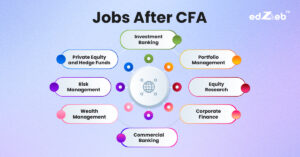
| Career Prospect | Description |
| Investment Banking | Helping governments and companies raise capital by underwriting and selling securities. |
| Portfolio Management | Managing investment portfolios on behalf of clients, making strategic decisions to maximize returns. |
| Equity Research | Analyzing stocks and providing recommendations to investors, helping them make informed decisions. |
| Corporate Finance | Working on financial planning, analysis, and strategy for corporations. |
| Commercial Banking | Managing client relationships, assessing credit risk, and providing financial services. |
| Wealth Management | Giving personalized financial advice and investment strategies to high-net-worth individuals. |
| Risk Management | Identifying and mitigating financial risks within organizations. |
| Private Equity and Hedge Funds | Managing investments and seeking high returns. |
The demand for CFAs also increased Post-pandemic because businesses need risk management professionals. They are trained to evaluate risk across various asset classes, assess macroeconomic factors, and develop risk mitigation strategies. Having CFAs on board provides a sense of security and stability. Therefore, CFA professionals have access to a wide range of opportunities across the globe.
Conclusion
Deciding to pursue the CFA after 12th is beneficial for students aiming to build a career in finance and investment. While you cannot directly start the CFA program after 12th, laying the groundwork early will be instrumental. You can focus on relevant subjects and building basic foundational knowledge can give you a head start. The CFA certification opens doors to global opportunities and career pathways.
FAQ’s
How to become CFA after 12th?
As you pass your 12th, just start CFA coaching by enrolling in one the best CFA coaching classes like the ones offered here, at edZeb. We offer both offline and online CFA coaching under the guidance of our certified trainers laying a strong foundation in finance.
Who is eligible for the CFA exam?
The CFA eligibility requires a bachelor's degree or exam window within 23 months of graduation. Candidates can take the Level I exam within 11 months of graduation. Alternatively, gain 4,000 hours of qualified work experience. Other eligibility requirements include a passport required for registration. You must also be proficient in English is required for exams.
What is the salary of an entry-level CFA?
The average salary for a Chartered Financial Analyst (CFA) in India is between ₹6-12 lakhs per year. The CFA salary is subject to experience, level, employer, geographic location, educational qualifications, and position within the organization.
How many exams are in CFA?
The CFA exams are divided into 3 levels and the curriculum of each level builds on the prior level while increasing its complexity.



